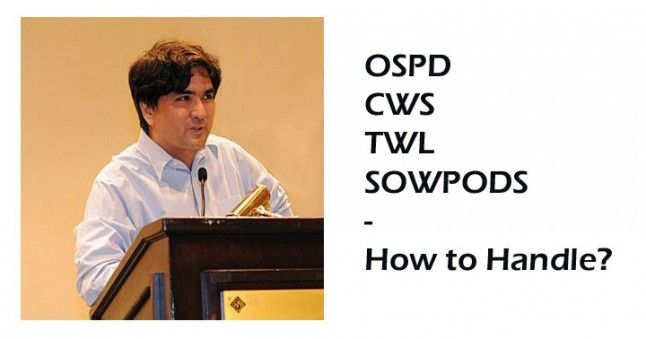There are different tools and strategies professional SCRABBLE players use in the game. The most essential tools, next to your SCRABBLE board, are probably the different word lists
valid for clubs and tournaments. But how do you start to use those lists? We asked John Chew, co-president of the North American SCRABBLE Players Association (NASPA), who is one of the biggest names in the international Scrabble community. As a longtime organizer of club sessions and tournaments, the passionate Scrabble enthusiast gave us a little insight into how to approach those lists.
The NASPA – the biggest Scrabble Group of North America
In 2009 the actual National SCRABBLE Association (NSA) of North American Scrabble Clubs was transformed into the NASPA. Originally financed by Hasbro, it was then recommended that the new organization establish its own non-profit corporation, funded by competition fees at tournaments and annual member fees. Since then, the NASPA has organized the annual National SCRABBLE Championship Tournament.
The newly founded NASPA, the only Scrabble Group being allowed to use the trademark SCRABBLE name, was headed by Chris Cree (Dallas) and John Chew (Toronto) as co-presidents. John Chew, since 1998 also director of the Toronto SCRABBLE Club, frequently organizes Scrabble tournaments and club sessions. We asked him to share his experience with the usage of the various word lists common among professional players.
The three largest word lists in the English speaking world
All in all there are three official word lists for English-speaking clubs and tournaments. The country is the deciding factor for choosing a list. Nevertheless, “each larger list contains all of the words in the smaller list,” Chew explains. So let’s begin with the smallest one.
1. The Official SCRABBLE Players Dictionary (OSPD)
The OSPD excludes words inappropriate for underage players in North America. The Dictionary was compiled in 1978 by the National SCRABBLE Association with the intention to have a concrete list to rely on at clubs and tournaments. The most current version, published by Hasbro in 2005, is the 4th edition (OSPD4).
2. The Official Tournament and Club World List, abbreviated Tournament World List (TWL)
As the name suggests, the TWL is not a dictionary and thus doesn’t include word definitions. Contrary to the OSPD, the TWL merely lists the words. The list was developed by the NSA Dictionary Committee, at which John Chew held the chairmanship. For this reason, the Tournament World List can only be used and purchased by clubs and members of the NASPA. It’s not internationally valid but can be used in the US, Canada, Thailand and parts of Israel. Since 2006 the TWL2 has been the current edition.
3. The Collins Scrabble Words (CSW) / SOWPODS
The international counterpart to the TWL is the Collins Scrabble Word List, which is internationally valid at English-speaking tournaments except for the USA, Canada, and Thailand. Still it contains all the words from the OSPD and the TWL and is used at competitions such as the World SCRABBLE Championship. The latest edition is from 2012.
A synonym for the CSW is a list known under the abbreviation SOWPODS. This is an anagram of the two lists OSW (Official SRABBLE Words, which covers the words from the Collins Dictionary) and OSPD. SOWPODS contains all the valid words from the British and American corpus, but in comparison to the CSW there is no printed version.
Advice on how to handle the word lists
Those three lists cover all the words valid on the international Scrabble playing field. John Chew admits that there will always be words you are not familiar with. Yet the British and American vocabulary can differ a lot and that’s why dictionaries or lists are so important. Chew, who also organized the World SCRABBLE Championship last December, explains:

Chew points out, that “a world-class competitor should be familiar with all of the words.” That doesn’t mean a player is supposed to know all the meanings of the listed words, but he should at least know which words exist. As advice for new players, who may want to play on a professional basis, John Chew suggests to “start by learning all of the two-letter words well enough to write them out by heart. Then learn the three-letter words the same way.” Learning the shorter words in stages will help you to apply and widen your new word knowledge with online (Scrabble App) and board-games. Practicing is unavoidable if you want to become a world-class competitor.
The way from a hobby to a professional Scrabble player
John Chew himself once learned word lists by heart too. “But I ran out of room in my brain and now only remember the interesting ones,” he admits. Even though he wasn’t a professional player from the start, Chew’s interest in Scrabble started early: “The game fascinates me, however, because as the child of a philologist, all of my formative years were spent discussing the wide variety of words found in the English language.” Interestingly enough, he actually got involved with the game when he was abroad: “I first started playing Scrabble seriously when I was living in France for a few years and wanted a way to maintain my English fluency.”
As the co-director of the NASPA it is also his job to organize club as well as national and international tournaments. Is there still enough time for playing while putting that much effort into organization?
The best recommendation John Chew can give to Scrabble players and those who want to move up and become professional competitors is the following: “Seek out the strongest opponents that you can find, online or at clubs or tournaments, and learn from them, both vocabulary and strategy.”
We thank John Chew for sharing his experience as a player and an organizer of Scrabble events. For those of you who would like to buy the lists/dictionaries for practicing: You can purchase the OSPD and CSW in regular stores like Amazon. As mentioned before, the TWL is only available for NASPA members. The next edition (TWL3) will be published in 2014 and can be bought at the 2014 National SCRABBLE Championship.


Due to delays in readying the software used by most players to study word lists, the effective date of OTCWL2014 for tournament play has been deferred. NASPA’s current position is that the effective date will be two months after the public release of the primary study tool (Zyzzyva, which NASPA acquired in August) for Windows and OS X.
Ross, thank you for the update